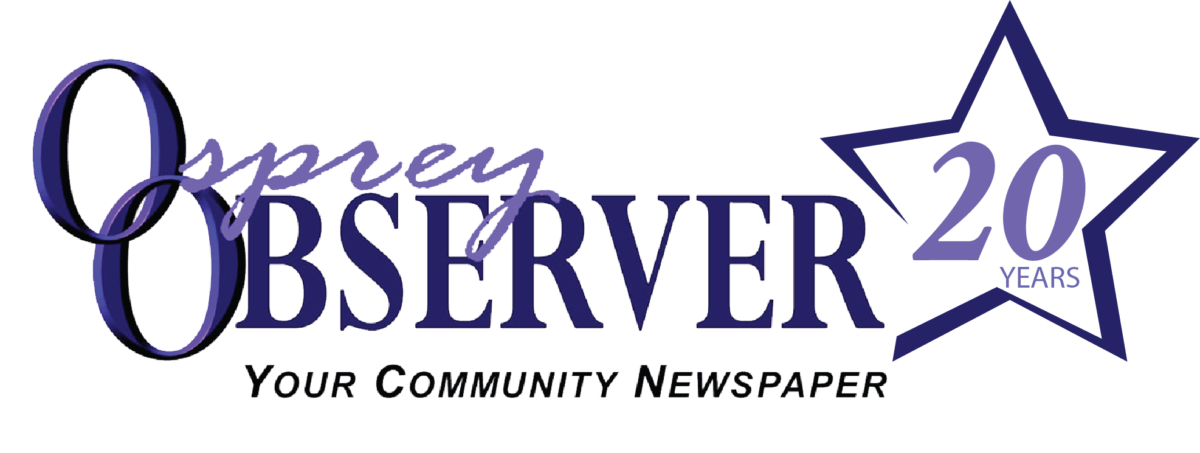
With a new Jurassic World movie just around the corner, raptors are on the mind. A local rescue, however, focuses on raptors of the non-dinosaur variety. Tampa Bay Raptor Rescue (TBRR) is a 501(c)(3) nonprofit organization that aims to rescue, rehabilitate, and release injured or orphaned raptors – a term used to refer to wild birds of prey – back into their natural environment in the state of Florida.
The volunteer-run organization, which operates solely on donations from the public, is dedicated to the preservation of native birds and conservation education and helps to rescue between 600 and 800 birds annually.
Nancy Murrah, the organization’s Vice President, said, “The most rewarding part of our role is releasing a bird back into the wild where it belongs, and knowing that without your help it would never have lived.”
The rescue works with Busch Gardens and other partners to help provide medical care and treatment to birds in need. Members of the TBRR team have over 25 years of experience in rescuing more than 2,000 species of birds, and work to educate the public on ways to help preserve native birds of prey and their habitats.
Murrah advises, “If you see any bird or animal sitting in the same position for over an hour, and it doesn’t move away from you when you approach it, there’s a good chance you should call for help.”
In some cases, birds that are not able to be released may find their home in educational programs as avian ambassadors. TBRR currently runs Nature’s Guardians, an educational program for children that starts in September. Murrah’s goal is to influence future generations to preserve wildlife and land, and noted that there are some species that may be extinct within the lifetimes of today’s children.
The organization answers the public need for avian rescue services in the greater Tampa Bay area, including Pinellas, Pasco, and Hillsborough counties and surrounding areas. The rescue works with veterinarians and licensed rehabilitators in areas such as Tampa, Brandon, Winter Haven, Clearwater, and St. Pete to give each bird rescued a full medical examination and determine the best course of treatment.
Murrah explained, “A lot of people ask us why we do what we do, and whether we are messing with the natural order of things. I would say 90 percent of the birds we bring in have some kind of manmade-related issue.”
Because TBRR does not have veterinarians on site, birds are transported an average of 71 miles per rescue case in order to receive professional care. To alleviate this problem, the organization is currently working to build a Bird of Prey Center in Hillsborough County to rehabilitate birds locally.
Murrah is hoping for the center to include a hospital clinic, a permanent display of live birds, and a public visitor center that focuses on conservation education.
TBRR concentrates on birds of prey, but its team has worked diligently to create a network of wildlife rehabilitators that are able to help other types of animals in need of rescue.
Murrah said, “A lot of people don’t realize that it’s nobody’s responsibility to rescue wildlife in Hillsborough County, so therefore it’s everybody’s responsibility to help them.
The way that we can best serve them is through building a center, and we are seeking corporate sponsors to do that.”
Donations to the rescue provide support and funding for this cause, and help injured, sick, and orphaned native birds. Donations of goods such as paper towels, blankets, and cleaning supplies are also greatly appreciated. A full list can be found on the Tampa Bay Raptor Rescue website.
Additionally, Murrah said that a variety of volunteers are needed in all capacities, and that there are many ways to help.
The best way to get involved or learn more would be to contact Tampa Bay Raptor Rescue, or attend one of the organization’s volunteer meetings, which are held every six to eight weeks.
For updates, more information on upcoming events, and educational material regarding the preservation of native raptors, check out www.tampabayraptorrescue.org




You must be logged in to post a comment.